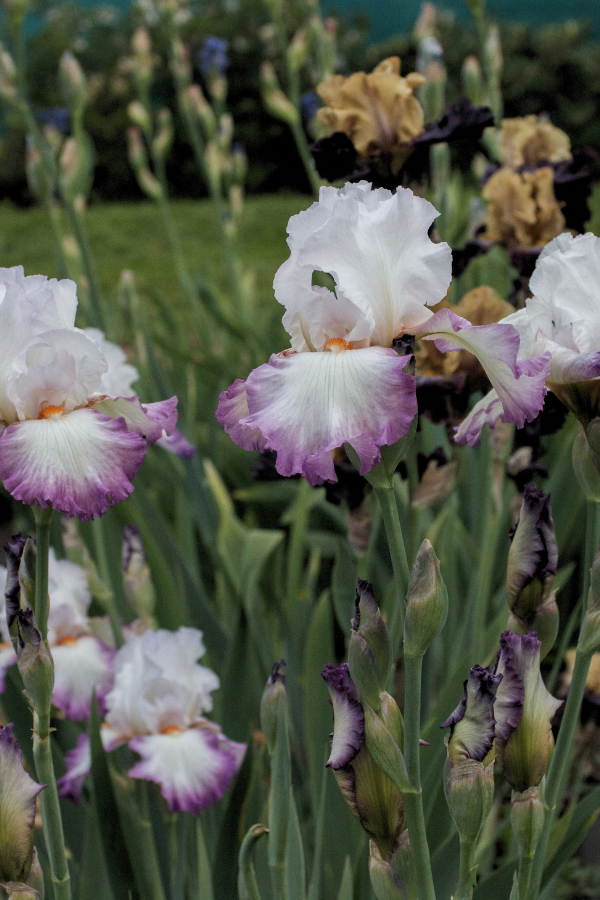
Making the Most of Dry January 2024
Summary
Reflection Questions
Journal Prompt
As many of our readers will already know, the Dry January Challenge is a public health initiative encouraging abstention from alcohol consumption for the first month of the year. In recent years, Dry January has seen a notable surge in participation, particularly among women. This period of abstinence is not merely a cultural phenomenon but offers significant physical and mental health benefits. By forgoing alcohol, women often experience improvements in physical well-being, including better sleep and weight management, along with enhanced mental clarity and reduced anxiety. The popularity of Dry January reflects a growing awareness of these benefits and represents a shift towards more health-conscious behavior in our society. Of course, quitting alcohol is easy for some, but much more difficult for others. In this article, we list our tips for Dry January. If you have struggled to stop drinking alcohol for a month in the past, read on to learn how our team ensures a successful Dry January. As always, we encourage readers to reach out for professional help if they struggle with alcohol abuse or an alcohol use disorder.
Understanding the Challenge of an Alcohol-Free Month

The challenge of eliminating alcohol in a culture where its consumption is widespread cannot be understated. Alcohol is often deeply ingrained in social norms and practices, making abstention a notable deviation from the norm.
This cultural ubiquity of alcohol presents a significant hurdle for individuals attempting to refrain, especially during social events where moderate drinking is expected or encouraged. The omnipresence of alcohol in various aspects of social life amplifies the difficulty of maintaining abstinence, particularly in settings where its consumption is almost ritualistic.
Several psychological and social factors play a crucial role in the temptation to drink. Psychologically, alcohol is often perceived as a means to alleviate stress, enhance mood, or escape from daily pressures, making it a go-to solution for immediate relief or gratification.
Socially, drinking is frequently associated with bonding, celebration, and relaxation, creating a sense of belonging or acceptance in social groups. Peer pressure, both explicit and implicit, can further intensify the urge to drink, as individuals may fear social exclusion or judgment for not partaking.
This complex interplay of psychological needs and social expectations significantly contributes to the challenge of resisting alcohol.
Dealing with Unwanted Physical and Psychological Symptoms of Eliminating Alcohol
Light and moderate drinkers may not typically experience the traditional alcohol withdrawal symptoms associated with heavy alcohol consumption, but recent research indicates that even light to moderate drinking can cause changes in the brain.
A study published in Nature Communications, involving the UK Biobank’s long-term research, found that light to moderate alcohol consumption leads to changes in brain volume and integrity similar to those observed in heavy drinkers. This study highlights that even small amounts of alcohol consumption, such as one to two alcohol units daily, could be associated with negative impacts on the brain’s gray matter volume and white matter integrity, resembling the brain changes in individuals with diagnosed Alcohol Use Disorder, albeit to a lesser degree.
It’s essential to replace “negative” habits with positive ones and to seek support during Dry January or any other abstention challenge to help counteract any unwanted experiences or feelings. Try to focus on the improvements in your physical and mental well-being when you stop drinking alcohol, such as more energy, improved sleep, and other optimal health results.
Dry January Tips for 2024
Setting Clear, Realistic Goals
Setting specific, achievable goals for Dry January is crucial for guiding and measuring the success of one’s commitment to abstention for an entire month. Clear goals provide a tangible target, making it easier to maintain focus and evaluate progress.
Additionally, well-defined objectives can significantly enhance motivation and resilience, especially when faced with challenges or temptations. The act of setting goals also encourages individuals to reflect on their personal relationship with alcohol and what they hope to achieve by abstaining, whether it is improved health, better sleep, or increased mental clarity.
When articulating goals for Dry January, it is essential to be precise and realistic. Goals can range from complete abstinence from alcohol to a reduction in the frequency or quantity of drinking. For instance, a goal could be to not consume any alcoholic beverages throughout January or to limit drinking to no more than a specified number of days in the month.
It is important to tailor these goals to individual circumstances and capacities, ensuring they are challenging yet attainable. Writing down these goals and revisiting them regularly can reinforce commitment and provide clarity throughout the month.
Building a Support System

Friends, family, and online communities play a pivotal role in bolstering an individual’s Dry January efforts. The support from these groups can manifest in various forms, such as offering encouragement, participating in non-alcoholic activities together, or providing a listening ear for challenges and successes.
Online communities, in particular, offer a platform for shared experiences, advice, and moral support from others who are undertaking the same journey. This collective support system is instrumental in fostering a sense of belonging and motivation, making the path through Dry January less isolating and more achievable.
Effectively communicating one’s goals to friends, family, and peers is a key step in enlisting their support. This involves clearly articulating the reasons behind participating in Dry January and what specific goals are set. Being open about the anticipated challenges and how others can provide support is also crucial.
This might include asking friends to engage in alcohol-free activities, requesting family members to avoid offering alcoholic beverages, or seeking encouragement when facing temptations. Transparency and openness in communication not only help in gaining support but also in establishing accountability, which can significantly enhance the chances of successfully adhering to your goal to not drink alcohol.
Creating New Habits
The process of replacing the habit of drinking with healthier habits is integral to the success of Dry January. This substitution approach not only assists in managing the urge to drink but also brings forth numerous health benefits.
Abstaining from alcohol often results in improved blood pressure, aids in weight loss, and boosts overall energy levels. Furthermore, it significantly reduces the risk of developing chronic conditions such as liver disease. By embracing healthier habits like regular exercise, mindful meditation, or engaging in creative pursuits, individuals not only divert their focus from alcohol but also contribute positively to their physical and mental well-being.
For women participating in Dry January, exploring new activities and hobbies that do not revolve around alcohol can be both fulfilling and empowering. Joining a book club offers intellectual stimulation and social interaction without the presence of alcohol.
Engaging in physical activities such as yoga, pilates, or group sports can provide a sense of community and physical wellness even if you have no goal to lose weight. Pursuing creative hobbies like painting, crafting, or cooking classes can also be enriching. These activities not only serve as a replacement for the time previously spent drinking but also help in developing new skills and interests, enhancing personal growth and self-satisfaction.
Managing Social Situations
When attending parties or events where alcohol is served, it is important to have strategies in place for managing social situations. One effective approach is to have a non-alcoholic drink in hand, which can reduce the likelihood of being offered an alcoholic beverage.
Additionally, planning responses to offers of alcohol can be helpful. These responses should be polite yet firm, conveying personal choice without needing to justify or explain one’s reasons extensively. Handling peer pressure involves maintaining confidence in one’s decision and being prepared to change the subject or remove oneself from uncomfortable situations if necessary.
Mindful Drinking and Awareness

Understanding triggers and learning to be mindful about the urge to drink involves recognizing the specific situations, emotions, or environments that increase the likelihood of wanting to consume alcohol. This awareness is crucial in developing strategies to manage these triggers.
Techniques for staying present and resisting cravings can include mindfulness practices such as deep breathing, meditation, or grounding exercises. These techniques help in maintaining focus on the present moment and the reasons for abstaining, thereby reducing the impulse to drink in response to external or internal cues.
Finding nonalcoholic drinks you enjoy and preparing them if you are used to mixing drinks at home can also help you resist.
Celebrating Milestones
Recognizing and celebrating progress during Dry January is essential for maintaining motivation and acknowledging one’s efforts. Celebrating milestones, whether they are weekly achievements or the completion of the entire month, reinforces the positive aspects of one’s journey.
Non-alcoholic rewards can be an effective way to treat oneself. These could include indulgences like a spa day, purchasing a desired item, or engaging in a favorite activity. Such rewards not only provide immediate gratification but also create positive associations with the accomplishment of set goals.
Preparing for Setbacks

Handling slip-ups during Dry January without becoming discouraged is key to overall success. It’s important to view any lapse not as a failure, but as an opportunity to learn and strengthen resolve. Acknowledging the slip-up, understanding what led to it, and forgiving oneself are crucial steps in this process.
To get back on track, one should revisit and possibly revise their goals and strategies, reaffirming their commitment to the journey. Learning from mistakes involves analyzing the triggers or circumstances that led to the setback and developing new strategies or strengthening existing ones to better handle similar situations in the future.
Reflecting on the Experience
We highly recommend engaging in some self-reflection at the end of Dry January. This is crucial for understanding the experience’s overall impact. It involves considering how abstaining from alcohol has affected health, habits, and overall well-being.
This reflection can include assessing changes in physical health, such as sleep quality or weight, mental health improvements like clarity and mood, and any alterations in social or personal habits. Reflecting on these aspects helps in appreciating the benefits gained and in making informed decisions about future alcohol consumption and lifestyle choices.
Final Thoughts on Enjoying a Successful Dry January
Dry January presents both challenges and benefits, offering those who participate a unique opportunity to reassess their relationship with alcohol. While the endeavor requires navigating cultural norms and personal temptations, it yields significant rewards in terms of health, mental clarity, and personal growth. This period of abstinence encourages women to reflect on their drinking habits and its impact on their lives. As January comes to a close, we encourage our readers to consider the insights gained during this time and how they might influence their approach to alcohol consumption beyond January. Are you planning to observe Dry January? Let us know in the comments below!








